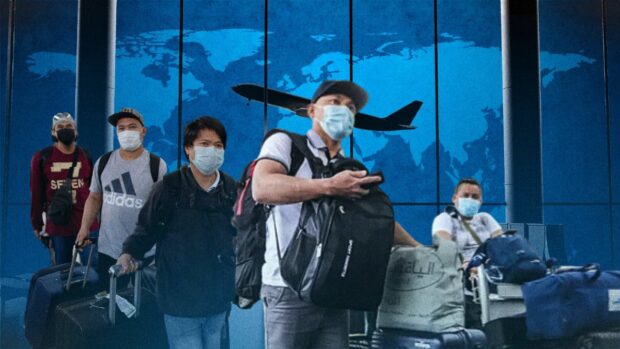
CEBU CITY, Philippines – Catholics hold a deep reverence for traditions, especially during the solemn observance of Kalag-Kalag (Undas).
These occasions encompass everything from obligatory cemetery visits, intricate ceremonies, and intercessions, to family reunions.
Filipinos are very accustomed to these traditions as they are ingrained in their hearts from generation to generation.
And those who are now abroad are certainly missing how Filipinos usually commemorate Kalag-Kalag.
Vinces Peligrino, who arrived in Dubai last October 29, 2023, said that she definitely missed how Filipinos celebrate the occasion.
“Kutob rakos picture,” she said.
READ: 8 things Cebuanos usually do during Kalag-Kalag
She expressed that celebrating in the Philippines feels warmer.
“[Sa] laing nasud like Dubai, trabaho gyud. Kudkud gyud [in this occasion],” Peligrino added.
According to Peligrino, her family there celebrated Kalag-Kalag or Undas through a ‘trick or treat’ activity.
Moreover, since her relatives are non-Catholics, they just offered prayers for their departed loved ones.
As of writing, Peligrino is looking for a job in one of the hospitals in Dubai and is hoping to settle down once she finds one.
Meanwhile, May Salas, a domestic worker based in the UAE, said that the only way she can observe Kalag-Kalag in a Muslim country is by remembering them through prayers.
“Sugu-on nako ako mga anak nga managkot sila ug pangadji adto sa menteryo ug pamisa para sa mga kalag,” Salas said.
She mentioned that commemorating Kalag-Kalag abroad is much different and difficult because she could not feel the presence of her family.
“Lisod lagi, taman nalang ta sa hilak,” Salas expressed.
On the other hand, Rachelle Fernandez, who is also a worker based in Dubai, said that all Overseas Filipino Workers (OFWs) in their area will gather together in one place to celebrate Kalag-Kalag.
“Magtapok mi unya magluto-luto. Ingana nalang jud,” Fernandez said.
There is no doubt that on any occasion, celebrating in one’s homeland is different, especially in the Philippines.
ALSO READ:
Undas practices continue at home for those absent in cemeteries, columbaria
Remembering the dead: Understanding atang, why it endures